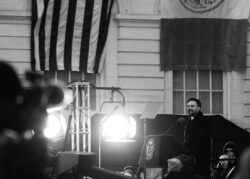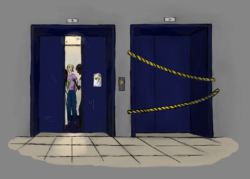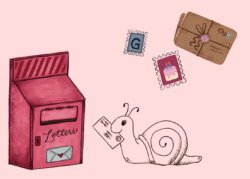Much is happening in my dear country of Venezuela. Mass protests converged nationwide on Feb. 12, our national youth day, when students took out to the streets to criticize the heavy-handed repression of their peers in other parts of the nation. It is quite complicated for someone who does not have ties to the country to understand the many problems we face, but I will try my best to explain the situation.
First of all, there are no guarantees of basic democratic rights in Venezuela. Students are subject to violence from government-sponsored paramilitary groups whenever they go out to protest, despite having a constitutional right to manifest their concerns. There is also no freedom of speech. The Venezuelan government has created a machinery of hegemonic communication control, forcing media outlets to either shut down or engage in self-censorship at the risk of having their license revoked. Public media cannot be trusted because it is riddled with disinformation and scapegoating. Just as in the Arab Spring, Twitter has become the tool used by Venezuelan protesters to communicate.
There are also instances of severe human rights violations with protesters being held in jail without trial, some even raped by state security officials while in custody. The existence of political prisoners dates back to the Chavez era. Case in point, under this government’s leadership, Venezuela has retired from the Inter-American Court of Human Rights.
Additionally, Venezuela has one of the highest inflation rates in the world. Ever since January 2013, there has been 56 percent real inflation and a whopping 200 percent increase in the price of the black market dollar.Because of stringent capital controls, the black market rate accurately reflects the plummeting purchasing power of the Bolivar, especially since the majority of products consumed are now imported. Chronic food shortages also plague the country’s citizens—national production of edibles is dangerously low because of strict pricing controls and widespread nationalization of industries.
Furthermore, violent crime is commonplace, and so is impunity. Venezuela has one of the highest murder rates in the world, with NGOs estimating that 24,763 killings occurred in 2013, a homicide rate of 79 people per 100,000 inhabitants. Also, out of every 100 murders, there are only nine arrests. These don’t necessarily translate into convictions.
Bearing the weight of these injustices, the Venezuelan people have taken to the streets to protest for an improved quality of life, citing the historically high prices of oil throughout most of the Chavez-Maduro rule.
So far, the government has promoted a rhetoric of political polarization, appealing to socio-economic differences by demonizing the opposition movement as being “bourgeois, fascist, murderous puppets of the United States of America.” In another example of hateful discourse, the governor of Carabobo state called on Bolivarian citizen militias via Twitter to deliver a “fulminant attack” on opposition protesters. Coincidence or not, Génesis Carmona, a Carabobeña beauty queen who was present at an anti-government rally in her home state, died on the same day from a direct gunshot to the head.
The support bases of Chavez’s legacy are progressively manifesting their discontent with the oppression witnessed in the country. Most importantly, the Bolivarian government is no longer supported by the majority of Venezuelans, the small claim they had towards legitimacy.
The preservation of Chavismo is not a matter of a struggle between the political right and left. Chavismo may have started as an ideology, but it has now devolved into a group of bureaucrats who seek to retain power at all costs. I do not have a fixed political affiliation, yet I still feel saddened for all of my socialist friends who have been betrayed by this government. Leftism needs a fresh, genuine proponent in Venezuela.
As for now, we cannot lose momentum. Pressure is building up and if we manage to keep on fighting, this government will have to face three options: immediately meet protester demands, leave the country, or wait for some true patriots in the Armed Forces to rise and support the people’s cause. I prefer the second option. The new Bolivarian aristocracy has already exploited enough of Venezuelans’ trust and should not be given a second chance, while a coup d’etat is always ill-advised because it is inherently undemocratic. Although this government did not rise to power by playing a fair game, a coup would degrade the Opposition to the same level as their oppressors.
As of Feb. 22, 12 Venezuelans opposing the regime have been confirmed dead, murdered by either government-sponsored paramilitary groups, the National Guard, or the National Intelligence Service. Abuse of power always comes in the same color, albeit different ideological hues.





